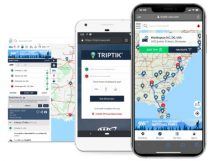
RICHMOND, Ky. (Sept. 6, 2017) – Typically, research in economic education doesn’t measure the effectiveness of financial literacy programs in the elementary and middle school grades.
But Dr. Cynthia Harter at Eastern Kentucky University is not your typical economic educator. And that explains why she has been selected by the National Association of Economic Educators and the Council for Economic Education to receive the Henry H. Villard Research Award, named for the co-founder and first editor of The Journal of Economic Education.
In a letter to the award recipient, the presidents of the two organizations said Harter’s “leadership has had an extraordinary, positive impact in economic education research.”
Harter’s work has been widely cited by others in the field of economic education research, and practitioners in the network have used her research results to gain support with schools, funders, and other stakeholders for teacher programs in economics and personal finance.
An associate professor of economics and director of the Center for Economic Education at EKU, Harter has focused her research on two broad areas of study.
“The first,” she explained, “is applying econometric techniques to the study of how economists allocate their time among teaching, research, and service, and, more specifically, what determines what types of teaching methods they use in the classroom and assign for work to be completed outside of the classroom. These studies have policy implications in areas such as academic hiring decisions and the structure of graduate school programs.
“My second broad area of research is the use of econometric techniques to study what works to help K-12 students (mostly in the EKU service region) learn economic and financial concepts. This line of research has been and continues to be an effective way to combine the teacher programming, training, and teaching work that I do as director of the Center for Economic Education with the work I do as an academic economist. I am able to use data collected by participating teachers to investigate the effectiveness of teaching methodologies and curriculum materials in improving students’ learning and attitudes about economics.”
Harter said she is “most proud” of the work that combined research methods with teacher programming for the center.
“This research has helped us craft high-quality programs … that are shown through research methods to support teacher programs in their geographic regions as well.”
EKU Center for Economic Education programs include the “Economics: Math in Real Life” program in grades K-5, a partnership also involving Central Bank, the Kentucky Council on Economic Education and Madison County Schools; the establishment, in collaboration with Central Bank, of the Learning for Life Teaching Award for elementary teachers in Madison County who demonstrate innovative ways to engage students so that they improve their personal finance decision making; and “Chocolate Economics” professional development workshops, in partnership with the Ruth Hunt Candy Co., to help K-6 teachers integrate economics content into their classes.
“Everyone uses economic analysis every day as we make decisions,” Harter said. “My work focuses on the teaching and learning of economics – specifically focusing on how decisions are made by students, teachers, and professors in the discipline. If we can better understand what helps students and teachers learn economics, we can improve the teaching of the discipline and elevate human knowledge overall as students who study this discipline are more engaged in their communities and take jobs in government, law, policy analysis, insurance, business, teaching, and more.”
Harter, who earned her bachelor’s degree at Tulane University and her master’s and doctoral degrees at Purdue University, joined EKU in 2001. Her husband, Dr. John Harter, also teaches economics at Eastern, and they have worked together on several economic education projects.
She will formally receive the Villard award at the Council for Economic Education’s annual Financial Literacy and Economic Education Conference on Oct. 5 in New York City.






Add Comment